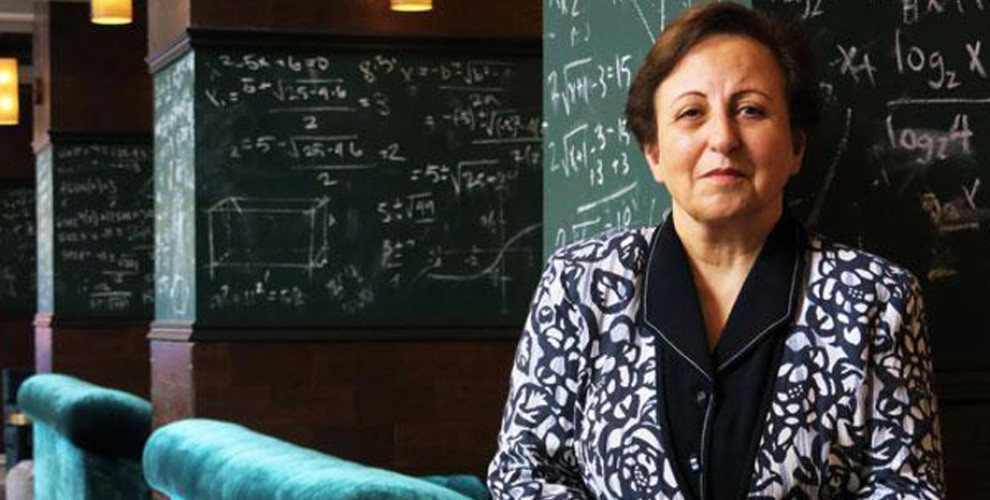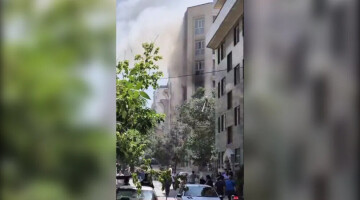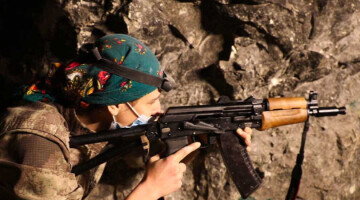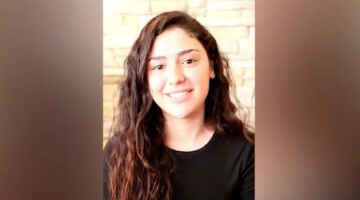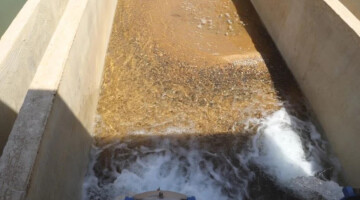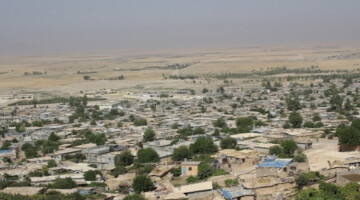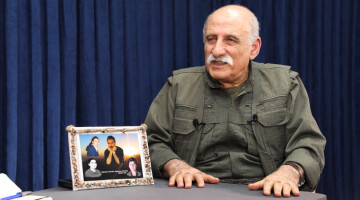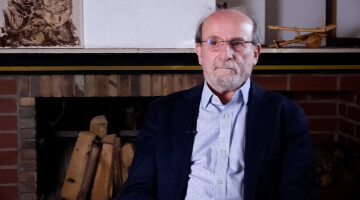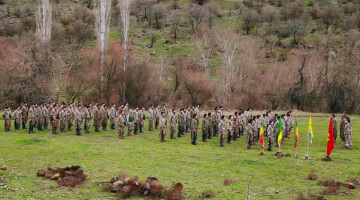As the repercussions of the popular protests launched on December 28, 2017 in Iran and Rojhilat (Eastern Kurdistan) against poverty and the oppressive policies of the regime continue, renowned Nobel Peace Prize laureate Iranian human rights defender Shirin Ebadi spoke to the ANF about the protests in the country. She stated that the people started the protests because they have no faith in reforms, the Iranian government or change itself in the country.
Ebadi said the Iranian regime has tyrannized society in every aspect and stated that economic reasons sparked the protests, then political demands allowed them to continue, and now the people want a referendum for a democratic administration. Ebadi also compared the most recent protests with those in 2009: “The people had chanted ‘Where is my vote?’ back then, and now they ask, ‘Where are our rights?’”
There has been silence in Iran for a long time, save for some local protests, but these last protests spread to huge masses. Considering the history and cultural wealth of Iran, what do you think of these protests?
Iran has a deep rooted history of civilisation. At the same time it lies on very rich lands. Iran is a rich country, in the sense of both material and spiritual civilization values. For instance, there are natural resources like oil, natural gas and dozens of minerals, and it is a country of 80 million people of many ethnicities and a lot of diversity.
There was a revolution in Iran in 1979 but as a result of this revolution, an Islamic Republic which has since turned into a dictatorship was constructed. There is inequality in the country between genders, religious sects and languages. Human rights violations have increased so much that new reports come out every day. But all the while the peoples of Iran continue to develop ideologically. People still value their children’s education a lot, despite everything. There is a generation with a good education.
How was the social structure in Iran before the 1979 revolution?
Before the revolution in Iran, women were further ahead in many areas compared to today. They experienced less discrimination, and they were better off financially. So individuals’ rights were wider than today. But politically, they were repressed back then as well, because the Shah did not believe in democracy at all.
After the revolution, a system called the Velayet-e Faqih was set up. How did this system oppress society?
The Iranian constitution grants extensive authority to the Velayet-e Faqih system. The Velayet-e Faqih system is above the judiciary, legislative and executive powers. And that creates a non-democratic system. On top of that, the government also greatly represses the people, and that in turn leads to a religious dictatorship.
In your opinion, what is the fundamental difference between Iran and other countries?
The government system in Iran itself has distinctive characteristics. In the Iranian government system, everything is determined according to Islam and its rules, or the National Guide. The National Guide in turn is determined in the Revolutionary Guards Commission (Shura-e Nighaban). That is why the requirements of other sects, faiths or religions in Iran are not taken very seriously by the government. Many mullahs (axunds) were imprisoned after the revolution because of this, some of them are still in prison. Because they didn’t agree with and opposed many official views of the government, which were claimed to be in accordance with Sharia.
In the most recent protests, the people were also angry at Iran’s role in the war in Syria. What was this role?
Unfortunately, Iran can trample international law and intervene in the domestic affairs of other countries. From Iraq to Syria to Yemen, they meddle in many countries. And for that, they can gain some fans. In the most recent protests, the people openly voiced their discontent with these policies and demanded the government step away from these countries.
What do you think Iran expects to accomplish through these interventions in domestic affairs of other countries?
They seek to spread the Islamic regime. They want to export this same system to other countries.
But popular protests started in Mashhad and Qum, two of the regime’s most trusted provinces, and they spread throughout the country. These protests were dubbed to be only “protests against poverty and hunger”. What was the purpose of these protests?
The people want to change their current lives. The people have no expectations left from the Iranian regime in terms of reform and change. Even though economic demands were in the foreground at first, in a very short time slogans demanding reform and change started standing out. The people now demand a referendum. The people want to determine their administration through a referendum to be held under UN supervision.
It was also significant that the demand for change was led by women during these protests.
Some special laws were passed after the revolution to prevent women from creating opposition. Pressures on women increased step by step. The people already had problems in general, but the problems women face due to their identity is much more. In this system, oppression of women increases every day.
The people had taken to the streets in 2009 due to election fraud in Iran. What do you think the fundamental difference is between current protests and those in 2009?
In 2009 the people had taken to the streets because of election fraud and chanted “Where is my vote?”, and today the people on the streets chant, “Where are my rights?”
The Iranian regime labels the protests as “fitnah from foreign powers”. What should the path of protesters be in the face of this?
The peoples of Iran took to the streets because of poverty, hunger, corruption, unemployment, injustice and political and cultural inequality. It would be very simplistic to connect these to foreign powers. Since the founding of the Islamic Republic of Iran, the peoples of Iran have voiced their discontent. Now to prevent the spread of protests the government resorts to arguments like “foreign powers”, “foreign states”, “enemies”.
PJAK called on the Kurdish people and the peoples of Iran to refrain from both supporting the regime and to call for foreign intervention, and to seek a third way for a democratic and equal life instead. What do you think of this call?
The Kurdish people are a part of Iran. And we are all against foreign intervention in Iran. We want to live together under an equal and democratic administration.
Like you, many Iranian intellectuals, academics, writers and artists live in exile. What could your role be in this process?
That is true, there are a lot of Iranian intellectuals, thinkers and human rights defenders that have to live in the diaspora. The Iranian people’s voice for freedom and democracy unfortunately doesn’t travel too far outside the country. We can amplify their voice and let the whole world hear.

